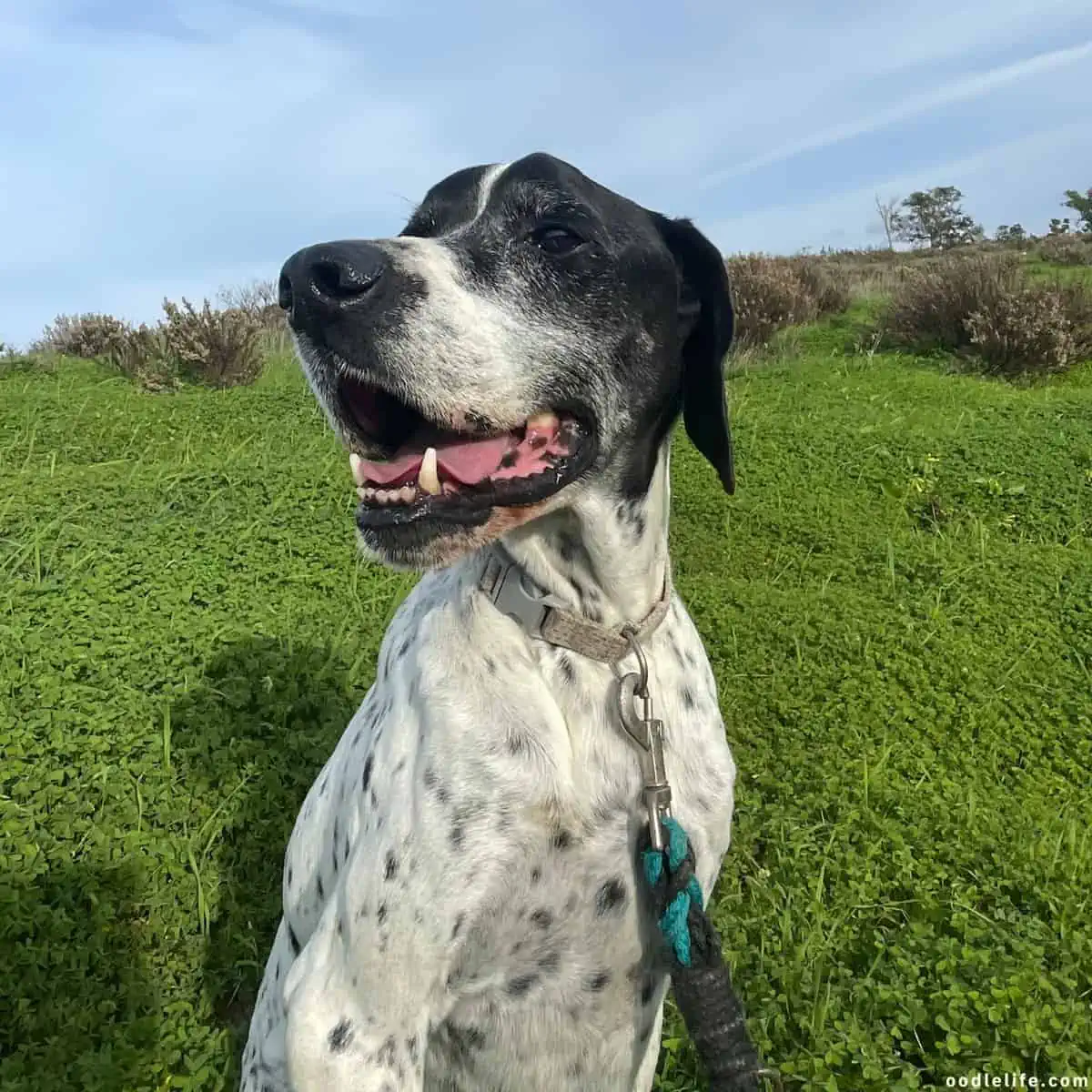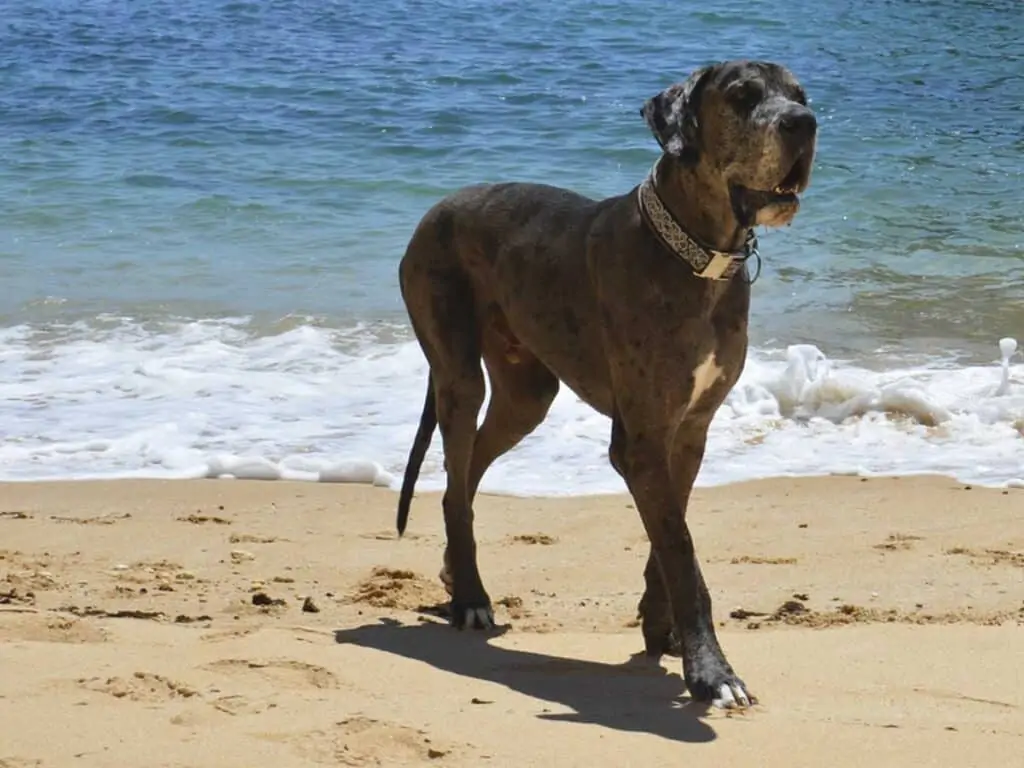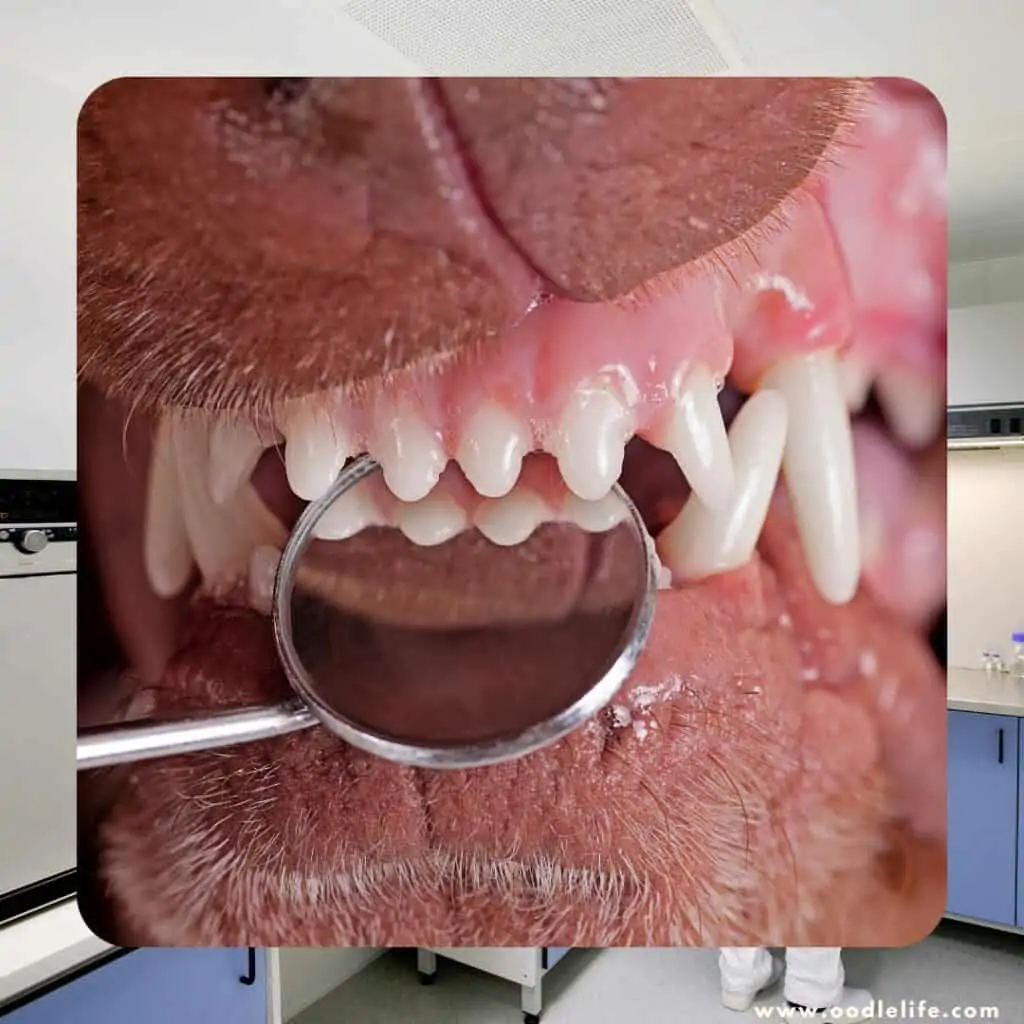My Old Dog Is Acting Strange? [11 Reasons Why]
Aging dogs can start to display strange behavior at random. However, changes in your senior dog are normal, and there are ways you can assist your dog during this stage of life.
What Is Happening To Your Dog On A Biological Level?
By the time your dog enters their senior years, which can vary from seven to eleven years old depending on your dog’s size, it’s already lived quite a long life. This stage of life can be just as strenuous and exhausting for your dog as a human’s old age, and your dog needs careful attention to stay comfortable and healthy.
So what’s happening to your dog on a biological level during this stage of life?

Neurological Decline
Evidence has been found to support the theory that neuron loss in the hippocampus of senior dogs can contribute to the decline of the way their brain works. These neurotransmitter system losses are very similar to those found in aging humans.

As you can imagine, this means that your dog may start displaying behaviors such as not listening to commands. Unfortunately, the dog brain can also develop symptoms akin to the human experience of Alzheimer’s, contributing to memory loss which may manifest in strange behavior.
Potential For Blindness
Aging dogs are more prone to losing their sight. This, of course, could be the reason behind your dog tripping over himself or walking into things.
Osteoarthritis
Older dogs may easily develop forms of arthritis, making it difficult for them to enjoy activities like hiking, running, and fetching which they may have used to love.

Hearing Loss
Hearing loss is also a risk for senior dogs. Just like with humans, hearing can go in old age and can affect your dog’s ability to listen and respond to commands.
Common Types of Strange Behaviors
There are several different kinds of behaviors in senior dogs that may cause alarm, including:
Bewilderment
This may manifest itself by noticing your dog getting lost in previously familiar locations or their sudden inability to make it through obstacles.
Social Behavior
Perhaps your dog has lost interest in petting or interacting with you. Conversely, your dog may desire consistent affection and come off as needy. Even other behavior issues such as attacking the new puppy can surface.

Changes In Activity
Your dog may wander around without a sense of direction, fixate on objects, become more vocal, or eat quicker.
Sleep Cycle Changes
This may manifest itself in your dog being awake at night or sleeping excessively during the day. Perhaps they even stop sleeping with you.
Bathroom Habits
Your dog may begin going to the bathroom in the house – even if they just left the outdoors – and it could be due to incontinence.
Impaired Abilities
Due to the neural changes in your dog’s brain, they may embody a less than perfect ability to perform tricks.
Ways To Assist Your Dog In Their Old Age
So, how can you help your doggo out as they reach the end of their life? There are many things you can do to support your dog as they age – let’s take a look at some of them.

Diet & Supplements
Diet is a huge factor in your older dog’s health. Senior dogs are prone to developing obesity, which can add stress to their arthritic joints and make it difficult to incorporate movement into their day.
A diet that is low in fat, has fewer calories, and is high in protein is usually the right pick for aging dogs. Some dog owners even opt to add dietary supplements, such as Glucosamine and fish oil, which can relieve the symptoms of arthritis.
Exercise
Although exercise could be more difficult than it used to be for your dog, it’s still imperative for them to get some movement throughout the day. Talking to your vet about their recommendations for an exercise plan is a great way to get started. It’s important to remain patient with your dog as you build their endurance up with regular exercise.
Vet Checkups
It is recommended that senior dogs visit the vet every six months or so. This is because your dog’s immune system is declining, meaning your best friend is left vulnerable to ailments they may have been able to fend off earlier in life.
Oral Health

Outside of the recommended once a year cleaning, older dog’s teeth should be stewarded carefully to mitigate the risk of loss. This means brushing your dog’s teeth everyday, or at least feeding them dental treats. This helps avoid periodontal disease.
Be careful that you dog does not eat floss or ANY human toothpaste though.
Grooming
As dogs get older, their skin becomes more prone to itchy dry spots and mats. It is recommended that you brush your dog on a regular basis and use gentle shampoos on their aging skin.
Accommodating Blindness and Hearing Loss
Dogs are prone to eye issues like cataracts in the last stage of life. If blindness is becoming an issue, there are small things you can do to help your dog, such as avoiding moving the furniture around and adding essential oils to areas they may walk into.
Hearing loss is another common issue in old dog age, and can cause your dog to be unable to listen to your commands. Try relying on vibrations instead, such as patting your foot near them to get their attention.

When To Talk To The Vet
Of course, there are only so many things lay people can do for their dogs. Taking your dog to the vet when they display certain symptoms or behaviors is the best course of action – and the sooner the better. Difficulty moving around, sudden changes in behavior, weight loss, or irregular urine and stool are all things that should flag you into making a vet appointment.
It’s easy to worry when your older dog starts displaying strange behavior, but they are still the same dog you fell in love with – they just need to be cared for differently. Taking attentive care of your aging dog can improve their overall health and make the last stage of their life a more comfortable time.